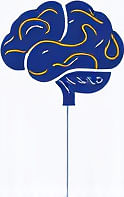Cognitive Behavioral Strategies for Remote Work and Neurodiversity
 by Max Miller
by Max Miller
Explore practical cognitive behavioral strategies that support neurodivergent adults in remote work settings. Learn tips for managing ADHD and autism challenges to achieve better focus, balance, and productivity in a home office environment.

Remote work offers flexibility, but it can present unique challenges for neurodivergent adults, such as those with ADHD or autism. These individuals often seek ways to maintain productivity while ensuring a healthy work-life balance. Cognitive behavioral strategies provide a helpful framework to address these issues by changing thought patterns and behaviors.
One key aspect is recognizing how thoughts influence actions. For example, negative self-talk can worsen focus issues. By challenging these thoughts, individuals can build more positive habits. ADHD commonly involves difficulty with sustained attention, making remote environments particularly tricky due to distractions at home.
To start, creating a structured daily routine is essential. This involves setting specific times for work tasks and breaks. A simple schedule can reduce overwhelm and promote consistency. For adults with autism, routines help in predicting the day, which minimizes anxiety.
Another strategy focuses on breaking tasks into smaller steps. Large projects might feel overwhelming, leading to avoidance. By dividing work into manageable parts, progress becomes achievable. This approach suits those with neurodiversity, allowing for regular achievements that boost motivation.
Mindfulness practices form another core element. Taking short pauses to breathe deeply can interrupt cycles of distraction. For instance, using a timer for focused work sessions, followed by rest, aligns well with cognitive behavioral principles.
Practical Hacks for Daily Implementation
Here are some actionable tips to integrate these strategies:
-
Prioritize tasks based on energy levels: Identify peak focus times and align demanding work accordingly. This ensures high-priority items get attention when mental energy is strongest.
-
Use visual cues: Place reminders around the workspace to prompt actions. For example, a checklist on the desk can guide through the day, reducing reliance on memory alone.
-
Incorporate self-rewards: After completing a task, take a moment for something enjoyable, like a short walk. This reinforces positive behavior and makes routines more sustainable.
These hacks draw from cognitive behavioral ideas, emphasizing the link between thoughts, actions, and outcomes. Adults with ADHD might find that self-rewards help in overcoming procrastination.
Communication with colleagues is also vital. In remote settings, clear boundaries prevent burnout. For those with autism, explicit discussions about expectations can ease social interactions during virtual meetings.
Tracking progress plays a significant role. Keeping a journal of daily activities and moods helps identify patterns. Over time, this reveals what strategies work best, allowing for adjustments. Productivity often improves when individuals see their own improvements documented.
Support systems matter too. Connecting with others who share similar experiences can provide encouragement. Online communities offer spaces to share tips without judgment, fostering a sense of belonging.
Addressing Common Challenges
Distractions are a frequent issue in remote work. Cognitive behavioral strategies encourage reframing these as opportunities for better habits. For example, if social media interrupts work, set firm limits on usage times.
Fatigue from screen time affects many, particularly those with sensory sensitivities common in autism. Taking regular screen breaks supports overall well-being and sustains energy levels.
Balance extends beyond work hours. Ensuring time for hobbies and relaxation is crucial. This prevents the blur between professional and personal life, which can exacerbate stress for neurodivergent individuals.
In summary, applying cognitive behavioral strategies offers practical ways to thrive in remote work. By focusing on thought patterns and behaviors, adults with ADHD or autism can achieve greater balance and efficiency. Experimenting with these approaches leads to personalized solutions that enhance daily life.
